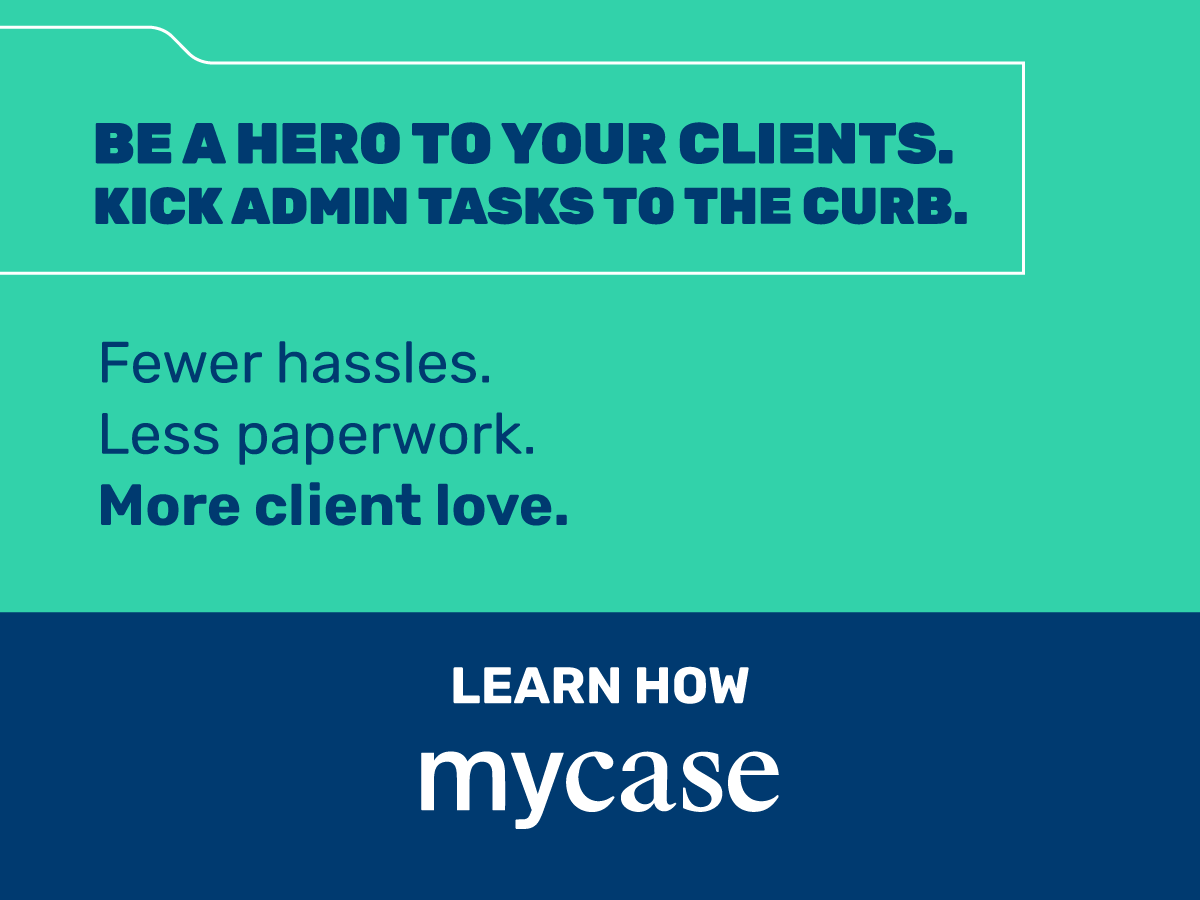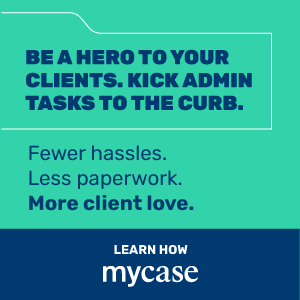Which means our lawyers must master the art of delivering truly differentiating levels of client service — a level of service that creates fierce loyalty, that turns clients in referral-generating machines, and that woos clients away from firms they’re currently using. Great service builds great relationships, which is the precursor to attracting great clients.
Another benefit of focusing on service is it makes our lawyers more comfortable engaging in business development; we are not asking them to “sell” but rather to “serve.” This simple change in nomenclature can unleash more potential interactions with clients, potential clients and referral sources, which in turn can result in more revenue.
Now that we’ve discussed “why” we should care about client service, let’s shift to the “how.” Before we go there, it’s first important to realize that many lawyers already believe they are delivering good service. Good, however, is often not good enough. Good does not build walls around our clients that other lawyers cannot scale. To move from satisfied to loyal, our lawyers must deliver at a higher standard — a “wow” level of service.
Having trained and coached thousands of lawyers over my career, it seems extraordinary service boils down to five areas — what I call the Five Pillars of Delivering Exceptional Service.
1. Know their business.
Sophisticated clients like working with lawyers who know their industry, their business and their needs. They don’t want to waste time educating their lawyers — they want them to not only know their needs and issues, but also to add extra value by bringing insights they’ve learned from working with other similar clients.
If certain lawyers have a cluster of clients in an industry, they should learn more about the nuances of that industry. For specific clients, they should know their challenges, their goals and their aspirations. Lawyers can gain this knowledge by reading industry publications, visiting client facilities, attending their strategic planning sessions, co-authoring articles and joining clients at industry conferences.
2. Be highly responsive.
... with an emphasis on highly. This may take a bit of work as most lawyers believe they are already responsive. Therefore, you might have to reframe their perceptions. What is responsive? What does it mean to the client, and not the lawyer? What does exceeding expectations look like?
While some lawyers think it’s OK to return a client call within 24 hours, certain clients may feel an hour is too long. They’ll lose patience and will call the next firm on their list. Here is an exercise you can do with your lawyers: Gather them together and have them brainstorm what it means to be highly responsive. Responsive in a way that differentiates them. This new standard of behavior should open a dialogue that results in new awareness — and hopefully new behaviors.
3. Be proactive.
By the nature of the work, lawyers are generally reactive creatures. An issue arises, clients call and the lawyers respond. But how refreshing would it be to clients if their lawyers acted like they were in-house counsel, charged with anticipating everything that should be done in advance to put the client in the best possible legal position. Have your lawyers do this in their own practices and have them talk to lawyers in other practices to learn what they would recommend. (And guess what? This is an elegant way to set up cross-selling opportunities for other parts of the firm).
“Good does not build walls around our clients that other lawyers cannot scale. To move from satisfied to loyal, our lawyers must deliver at a higher standard — a ‘wow’ level of service.”
4. Add value.
Most lawyers can offer legal solutions, but few go the extra mile. Have your lawyers think about what they can do that is above and beyond what is typically expected by clients. Perhaps they can offer in-house training, volunteer to join board meetings, provide updates on legal developments, conduct audits or offer the use of the firm’s conference rooms for a client’s important meetings. When they go beyond what is expected, clients notice and appreciate it.
5. Manage the relationship.
Expectations are variable creatures, differing from one person to another. Some clients may want weekly update reports, while others don’t want to hear from their lawyers. Some may want an aggressive, take-no-prisoners style of litigation, while others want to amicably negotiate mutually agreeable outcomes. Some may want to build personal relationships, while others want to keep everything at arm’s length.
The secret is to understand their expectations when opening the matter, to check-in during the relationship to see if any adjustments need to be made, and to meet at the conclusion of the matter to receive feedback. At this point (if things went well), they can ask if there are other areas where they can help. New work is often there — your lawyers just need to know how and when to ask for it.
The overall mindset your lawyers should adopt is to never assume they know what clients want, and to always ask and learn to make sure there is no disconnect between what clients expect and what your lawyers deliver. Then, your lawyers should seek to exceed expectations to activate the “wow factor.” Wowed clients are more loyal, they continue to give the firm work and they generate positive word of mouth.


